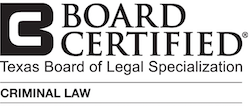5th Amendment
I read all of the series of novels of Micheal Connelly's The Lincoln Lawyer series. There are 4 books in total, and I couldn't put them down. I read one right after another, and couldn't stop reading any of them until I finished. I tabbed sections that I found pertinent to my everyday life as a criminal defense attorney. Some of them were so profound, I figured the author must have done criminal defense work at some point for a living. I found out later that he just mirrowed some attorneys at the courthouse in L.A. to gain perspective. I have written a few blog posts about some of the contents from the books, each regarding different thoughts I had when reading each book.
In one of the books the main character, Mickey Haller, gives his views on whether or not the defendant should testify in a criminal case. I found his perspective to be especially interesting because they are similar to my own. His view on a client testifying and NOT utilizing their 5th Amendment right to not incriminate themselves, is as follows:
"I always viewed the risks of letting a client testify as evenly split. Anything he said could come back to haunt him if the prosecution could bend it to the state's favor. But I also knew that no matter what admonishments were given to a jury about a defendant's right to remain silent, the jury always wanted to hear the defendant say he didn't do it. You take that away from the jury and they might hold a grudge."
I found this viewpoint so interesting because it exactly how I've always felt about this issue. Most attorneys FIRMLY disagree with their clients EVER testifying. While I think obviously there are certain circumstances where it is particularly unwise to have the defendant testify, I personally am of the opinion that this should be the exception, and NOT the rule.
I wrote my opinion in the Top 10 Mistakes I believe some attorneys make when representing someone charged with Driving While Intoxicated. The list is located here. Number 7 on my list is NOT having the defendant testify. As of the time I am writing this, I have received 11 acquittals in the last 12 jury trials I have conducted. I am very proud of this statistic. While I can't remember each case while I am trying to recall, I would estimate that I had the defendant testify in at least 80% of them. If I hadn't chosen to do this, I believe that at least 4 of the trials would have resulted in a "Guilty" verdict. That is how important I think it is to have the Defendant testify if at all possible.
Every case is different. Every situation is unique. There are various reasons given the particular circumstances on why a person maybe should or should not testify. Sometimes it is a game time decision and it should only be made when you know it should happen. The Lincoln Lawyer probably said it best, the "risks are evenly split." The purpose of me writing this, however, is to express how wrong I think attorneys are who hold the opinion that it is ALWAYS a bad idea for the Defendant to testify. In my opinion, many of these attorneys are simply lazy and do not want to put in the work and preparation it takes to ensure the Defendant is confident enough to take the witness stand to convey their side of the story.
There are obvious risks involved. A Prosecutor will no doubt try to use anything the Defendant says that may insinuate Guilt against him. However, I believe this is part of the game. In my opinion, far often than not this risk is outweighed by the reward...which, in a criminal case, is an acquittal!
Legal notions like "Beyond a Reasonable Doubt" and "The Presumption of Innocence" all too often are lost on a jury. Often they don't want to apply these legal notions, or they just don't care. Likewise, I think it is hard for juries to truly set aside and NOT consider the Defendant's 5th Amendent right to NOT testify on their own behalf. I don't think juries fully take into consideration why the Defendant would choose NOT to testify. There are, to be sure, a myriad of reasons why a Defendant would choose not to testify in their own trial, not the least of which is how a skilled Prosecutor can question the Defendant in a manner that may cast doubt on testimony of an otherwise innocent person.
All things considered, however, I believe almost ALL of the time juries tend to believe the reason for the Defendant NOT testifying is simply because they are GUILTY. I think they believe, "what other reason could there be for it?" "Afterall, if he was innocent, why wouldn't he just get on the stand and testify?"
That sums up the mindset for me for why I encourage my Defendants to testify. That mindset can be difficult, if not impossible, to overcome. In many cases, whether it be a DWI trial, or a sexual assault case, I think juries want the defendant to look them square in the eye and say, "I DID'NT DO IT!"
Anything less, in my opinion, and you are not giving yourself the best possible chance to win. Training someone to testify takes time and preparation. It doesn't just happen over night. You don't train them to lie, rather, but how to tell the truth without coming off as if they are unsure of their story.
The bottom line is juries want to hear from the accused on trial. And when they don't, I think many times it can turn out far worse. I think they hold it against the Defendant. They think he is hiding something. They may even think he's possibly "Not Guilty" of this crime, but he's Guilty of something.
I hope I have a long career ahead of me when making these decisions. So far I think it is remarkable how often having the Defendant testify has worked for me. There will be times in the future when this will not be such a great idea, I know. One trial comes to mind, in particular, when trying to illustrat this concept. Facts of the case was a "he said/she said" sexual assault charge. My Defendant said it was consensual. The victim did not really remember much the night afterward. The victim had been drinking trashcan punch all night and snorting lines of cocaine. The Defendant in my case said she had seduced him and everything was consensual. The morning after she told her boyfriend what happened, who then made her go to police. The day after when qeustioned by the police, she told the investigators that "she didn't remember" whether she had sex with the Defendant. Weeks later in the Forensic interview, she was instructed in a very direct manner to say that she had been penetrated. Her response was "that she didn't know."
At the Trial she got on the stand and said she knew, 100%, that the Defendnant was the one who raped her. I was shocked. Her story changed multiple times before coming to trial, all the while after being coached by interviewers and prosecutors. Nonetheless, she told her story...albeit while doing it I personally think her testimony was incredibly coerced and not true (and far from accurate).
...And in my opinion, afterwards, it was time for our Defendant to tell his. At this point I felt the jury would certainly convict. They had no reason NOT to. They needed someone to tell them IT WAS CONSENSUAL! In this circumstance, that could only come through the Defendant. So I URGED HIM TO TESTIFY! He swore to me from Day #1 that it was consensual, and I believed him! So I told him that I was of the opinion that he should get up there and just tell the truth. The other attorney I tried it with felt differently. He was of the school of thought that a Defendant NEVER testifies. There is simply too much risk he said. It would certainly lead to a conviction. I disagreed.
The Defendant did not testify in my case. He was talked out of it by the other attorney. And, after about 6 hours of deliberations, he was found "Guilty" as Charged. The other attorney and myself argued vehemently after the verdict over what he should have done. I couldn't help controlling my emotions in telling him we should have let (and possibly forced him) him to testify. He said we couldn't have done it, that it would have led to a conviction for sure. And I responded by saying..."well we know now that your way 100% LED to a conviction...that much we can be sure of." In fact, I told him prior to the trial that if we tried it his way, I said I knew what the verdict would be, I just didn't know how long it would take for the jury to decide it. Now we knew it was around 6 hours. I told him doing it my way...having the Defendant testifying...may still have resulted in a Guilty verdict had they not believed his version of the events...but, also...it was pretty clear to me that it was the ONLY realistic chance our Defendant had to obtain an Acquitttal. To this day, I as certain of this as when I tried to give him the advice to testify. My confidence was not without preparation and a strong belief that he was going to do incredibly well. I had him so ready to testify I think he was tired of me coaching him on possible cross-examination questions. Plus, he was a well-spoken and mild-mannered kid, far from the predator most people would expect from someone charged with something so horrible.
The morale of the story to me is this. In criminal cases, juries instinctively want to hear from the Defendant. If he just sits there and remains silent, they presume "Guilt," not "Innocence." In my opinion the only way the "Presumption of Innoncence" can actaully apply is if the Defendant does testify on his own behalf. I think only then do the scales of justice begin to become back into balance.
Most attorneys who have the philosophy that Defendant's never testify, in my opinion, are playing NOT TO LOSE. As a Football fan, I hate when coaches play like this. Most of the time, instead, having the fortitude to put your Defendant on the stand, after well coaching him on what to say and what not to say, you are PLAYING TO WIN.
I don't know that it applies in every case. Most notably when you believe you truly have a "Guilty" client. That obviously changes things dramatically. But my recent track record for success in obtaining acquittal verdicts I believe speaks for itself. Jury verdicts can go either way...it's a real gamble. What can swing the panel one way or another is simply having them hear what the story is from the person who cares about the proceeding the most: THE CITIZEN ACCUSED. Without the Defendant having a "speaking" part throughout the entire process makes them look very, very "Guilty." Makes them look like they are hiding something or they are perhaps holding on to a large secret. Considering this, it's no wonder that many times when the Defendant DOES NOT testify on the witness stand before the jury, the verdict results in a CONVICTION.






















